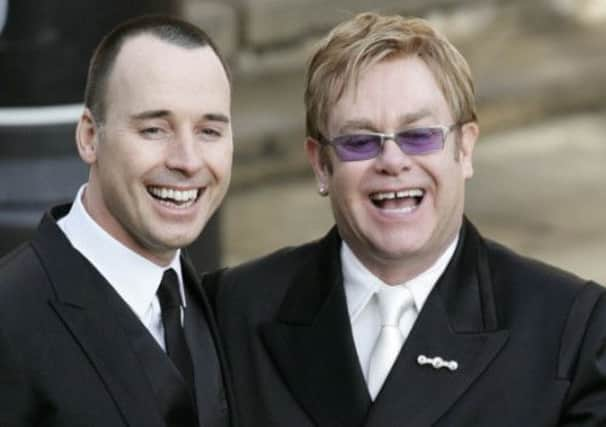Philip Norton: To deny the freedom to marry is discrimination


Given that there are grounds for taking this as an issue of freedom, there would need to be compelling grounds to deny such freedom. What, then, are the arguments? We have heard that we should not favour a small minority against the wishes of the majority. The problems with this are twofold: one factual and the other a basic issue of principle.
The Ipsos MORI polls from early this century demonstrate a clear shift of opinion in support of same-sex marriage. I prefer survey data as being somewhat more reliable than anecdote and assertion. We should regard the letters we receive as political intelligence, not somehow a reflection of public opinion.
Advertisement
Hide AdAdvertisement
Hide AdAll recent opinion polls where the question has been a simple, straightforward one of being for or against same-sex marriage have shown majority support. The recent YouGov poll is especially revealing. Not only is same-sex marriage supported, overwhelmingly so by those aged under 40, but also by women, by a margin of about two to one. Opposition appears to come predominantly from older males.
Furthermore, in the poll the percentage strongly in support of same-sex marriage is notably higher than the percentage strongly opposed. As for those who claim that it will cost my party the next election, the poll shows that of those for whom it will be an important issue at the next election, more said that they would be more likely to vote for a party that supports same-sex marriage than those who said that they would be less likely to do so.
The issue of principle relates to writing off minorities because they are minorities, not least those which may not be popular with some sections of society. Homosexuals have been discriminated against and still are, appallingly so in many countries.
To discriminate against a category of persons, to deny them freedoms accorded others because of the characteristics which they have not chosen but which set them apart, is fundamentally objectionable in a democratic society.
Advertisement
Hide AdAdvertisement
Hide AdWe are told that it is not up to Parliament to redefine marriage. This demonstrates ignorance of our constitutional arrangements and of our history. Parliament can redefine marriage and, as we have heard, Parliament has redefined marriage. It has done so frequently since the Marriage Act 1541, as illustrated by the noble Lord, Lord Pannick. Indeed, that is just as well, otherwise we should still be treating marriage as the transfer of the property of the woman from the father to the husband.
It is claimed that permitting same-sex marriage devalues marriage. That is not an argument but rather an assertion of moral superiority. It rests in good measure on a rewriting of history and on biblical text. The Bible has been used to justify all sorts of discrimination that we now regard as morally abhorrent. In every sphere of life we are constantly learning, except, apparently, in this one respect, where we cling to a view held 4,000 years ago.
Much of the debate has been conducted as if we were the first nation contemplating the introduction of same-sex marriage. We can learn from what has happened elsewhere. Most of the nations that permit same-sex marriage are signatories to the European Convention on Human Rights. Their churches have not been forced to do anything by the European Court of Human Rights that they do not wish to do. We have heard assertions in this debate that the introduction of same-sex marriage has led to a decline in heterosexual marriage.
Some countries have seen a decline in traditional marriage, notably Portugal and Spain, but in Portugal that was happening before the introduction of same-sex marriage. In Belgium the figures for traditional marriages went up, not down. A study of the Netherlands found that trends in marriage and divorce did not change. In nations where it has been introduced, support for same-sex marriage has increased, and none of the dire consequences predicted as a result of the passage of this Bill appear to have been experienced.
Advertisement
Hide AdAdvertisement
Hide AdI end with the words of Paul Parker of the Quakers in Britain: “For us marriage is not a mere civil contract, but a religious act. While we don’t seek to impose this on anyone, for us this is an issue of religious freedom”.
The principled case for supporting the Bill is, to my mind, compelling.
* Lord Norton of Louth is a former head of politics at Hull University. This is a speech he gave in the House of Lords on the same-sex marriage Bill.